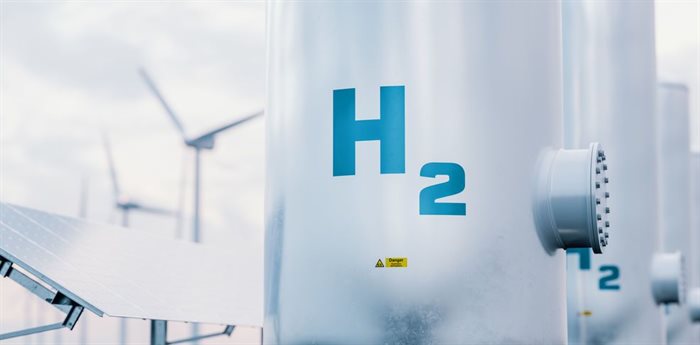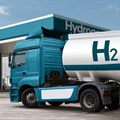On the periphery of this year's Mining Indaba, Webber Wentzel and Africa Practice jointly hosted a panel discussion on green hydrogen and how Africa can leverage its competitive advantage given its abundance of natural resources.
Led by Marcus Courage, CEO of Africa Practice, the panel featured Dr Fahmida Smith, market development principal at Anglo American and vice chair of the African Hydrogen Partnership; Dr Rebecca Maserumule, chief director for hydrogen and energy at the Department of Science and Innovation; Jason Cuomo, lead chemical/process engineer at Hydrox Holdings; and Jason van der Poel, partner and lead for the energy practice at Webber Wentzel.
SA intent on developing its green hydrogen economy
South Africa has long been doing its homework and is intent on developing its own green hydrogen economy, citing the many potential benefits, including 3 million jobs by 2050, noted Maserumule. However, skills development is imperative to drive innovation and success in this space. Recognising this, government last year extended its National Hydrogen and Fuel Cell Technologies Research, Development and Innovation Strategy (HySA Strategy) for a further 10 years.
Innovation will be needed to address some of the technical challenges in scaling up the green hydrogen sector. One of which is the intermittent and irregular nature of renewable energy loads which ultimately affect the lifespan of electrolysers, explained Cuomo. However, despite some of these initial challenges, countries like Namibia are forging ahead, looking to extend its electrolyser capacity to up to 3GW.
Red tape and regulatory uncertainty
Van der Poel, providing the legal perspective, noted the many components that need to be considered when setting up a green hydrogen project, including water supply, production, storage, health and safety, all the way through to export and shipping. He highlighted the issue of red tape and regulatory uncertainty in the green hydrogen space and how this needs to be addressed in order for South Africa and the continent to achieve its objectives.
"The one lever that might be used for green hydrogen projects across South Africa would be to have them designated as strategic integrated projects to facilitate the speedy granting of all of these different permits along the way," he said.
Export markets
A number of countries and regions have already expressed interest in importing green hydrogen from Africa, many of which lack the land availability for the large-scale deployment of renewables. Most notable is Germany, Europe in general, and Japan, according to Maserumule. The African Hydrogen Partnership (AHP) aims to play a facilitating role in this regard.
As vice chair of the organisation, Smith explained some of the AHP's goals. "It's really focused on bringing the various countries within Africa together, uniting the continent around a green hydrogen ambition. The African Hydrogen Partnership basically looks at everything from production, compression, use through fuel cells as well as export of green hydrogen to the rest of the world."
Skills development in manufacturing
Cuomo emphasised that, ultimately, if we are going to scale up, we need to focus on education and skills development in the manufacturing and building of green hydrogen systems as opposed to just in servicing and maintaining the value chain as many of the key components are currently imported.
"This will maximise job creation and have the greatest impact on the economy and the socioeconomics that follow through from that," he said.
Watch the full webinar:

















































